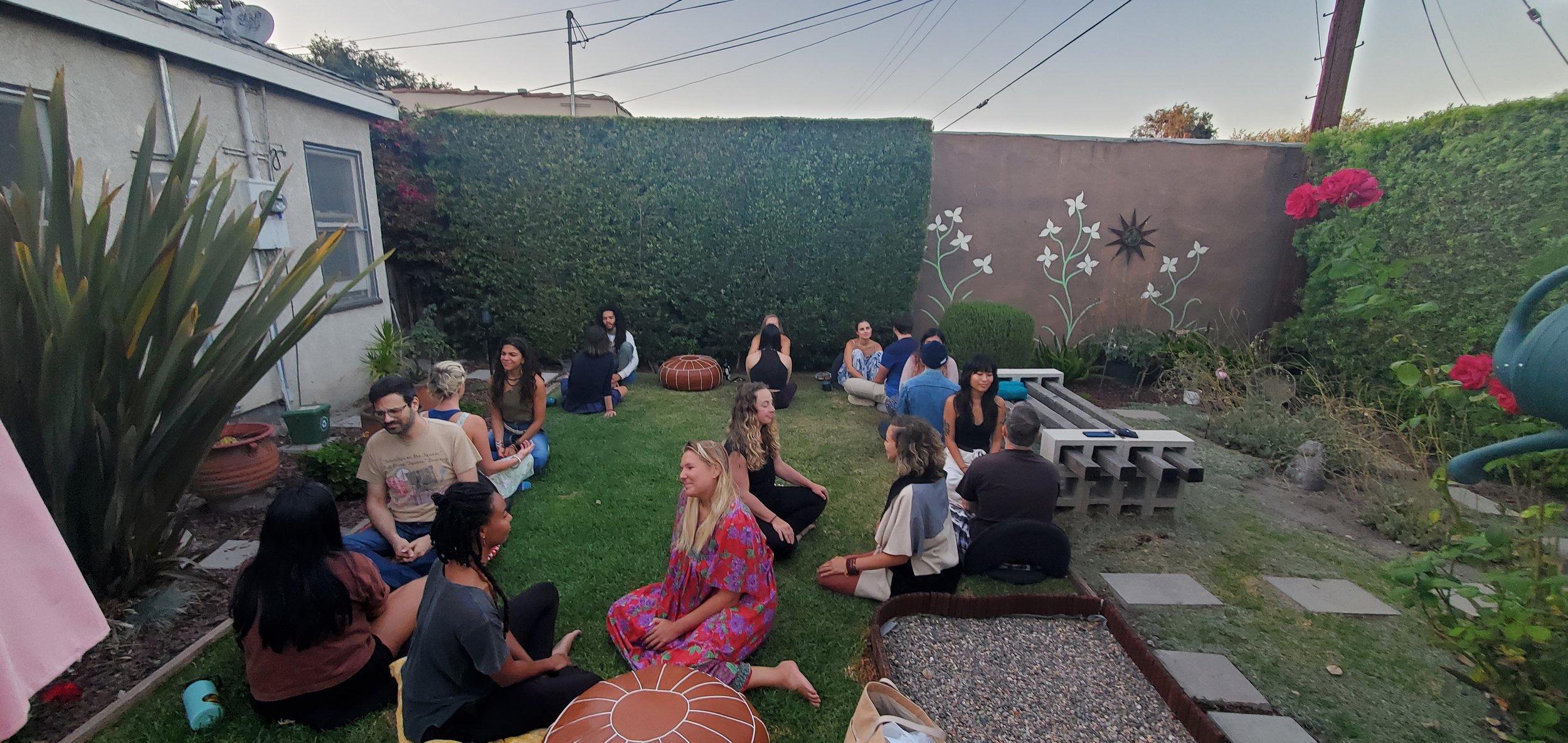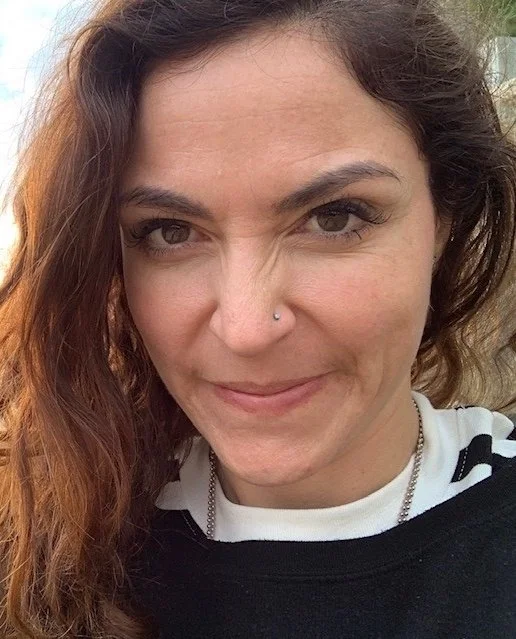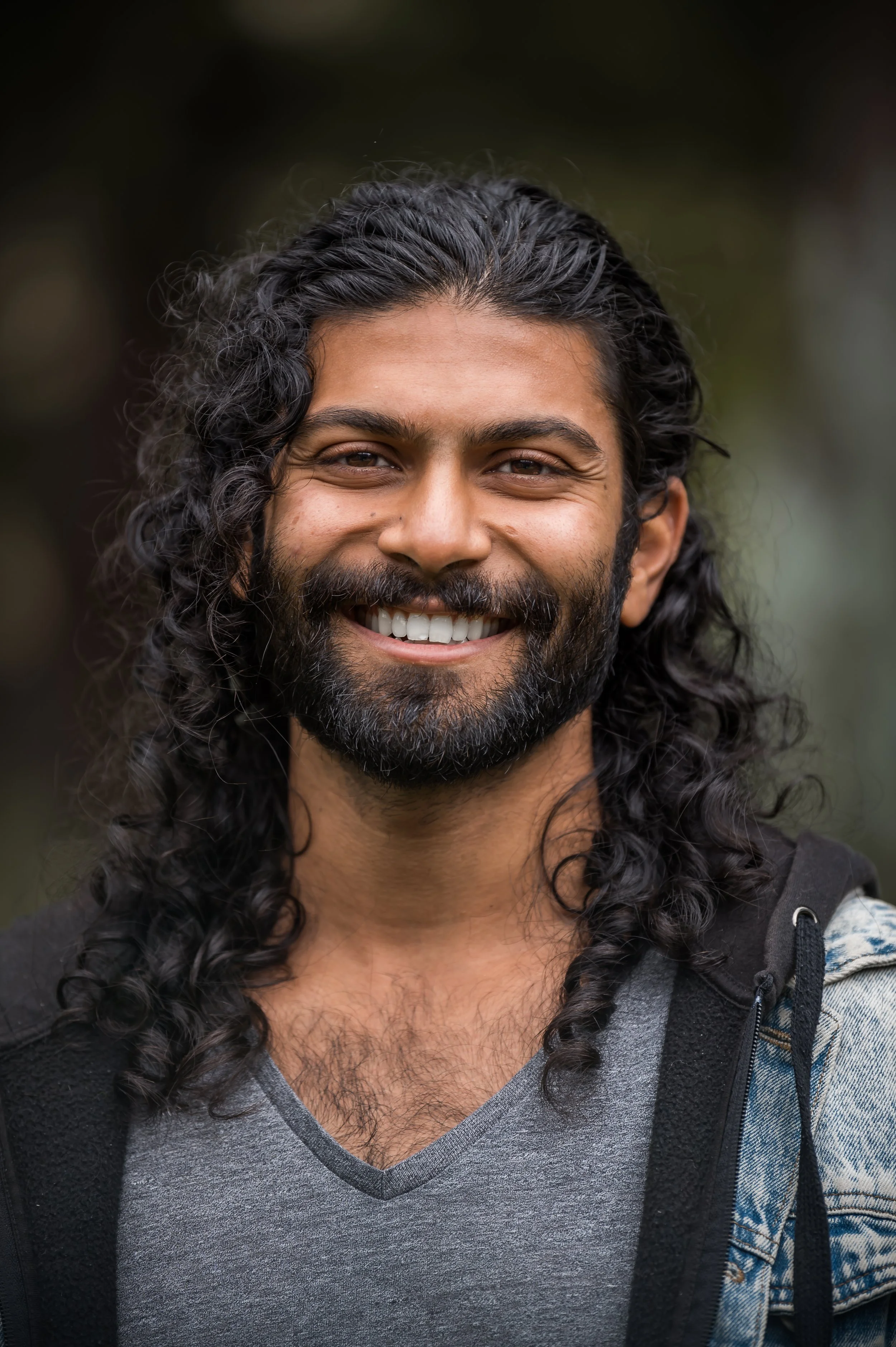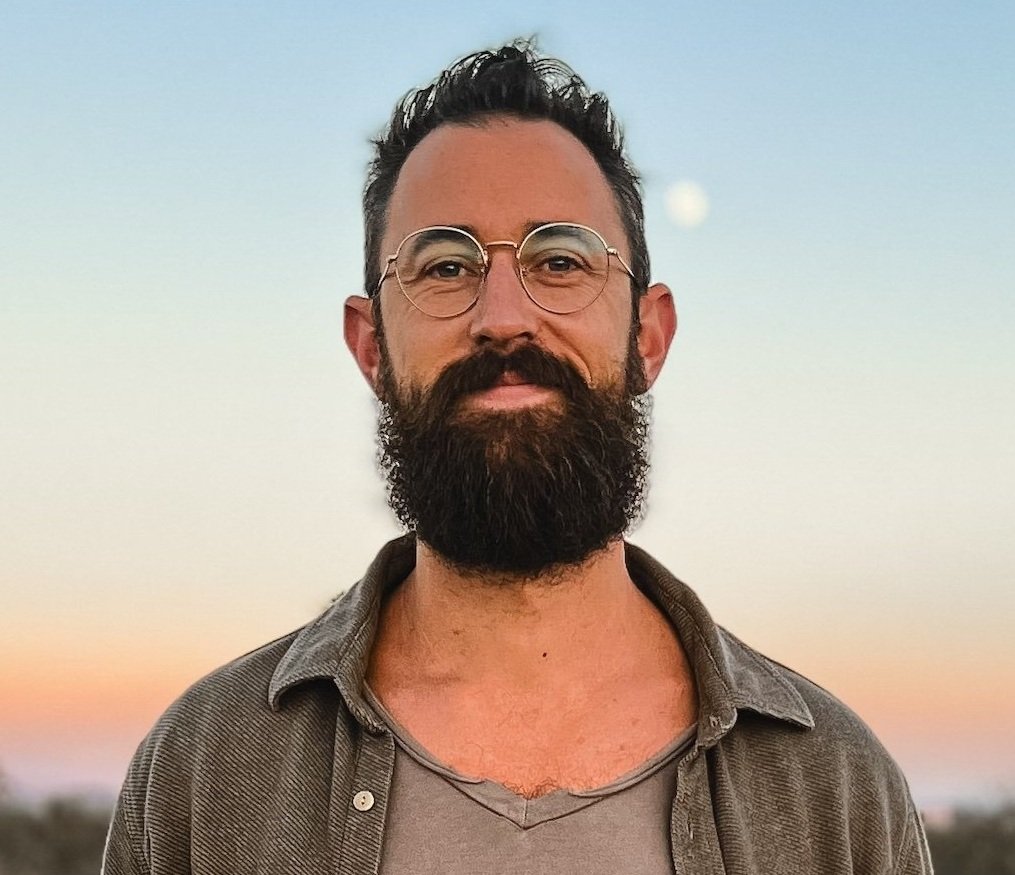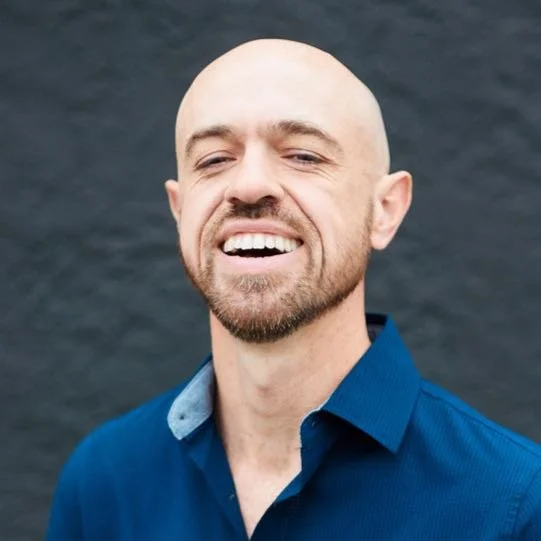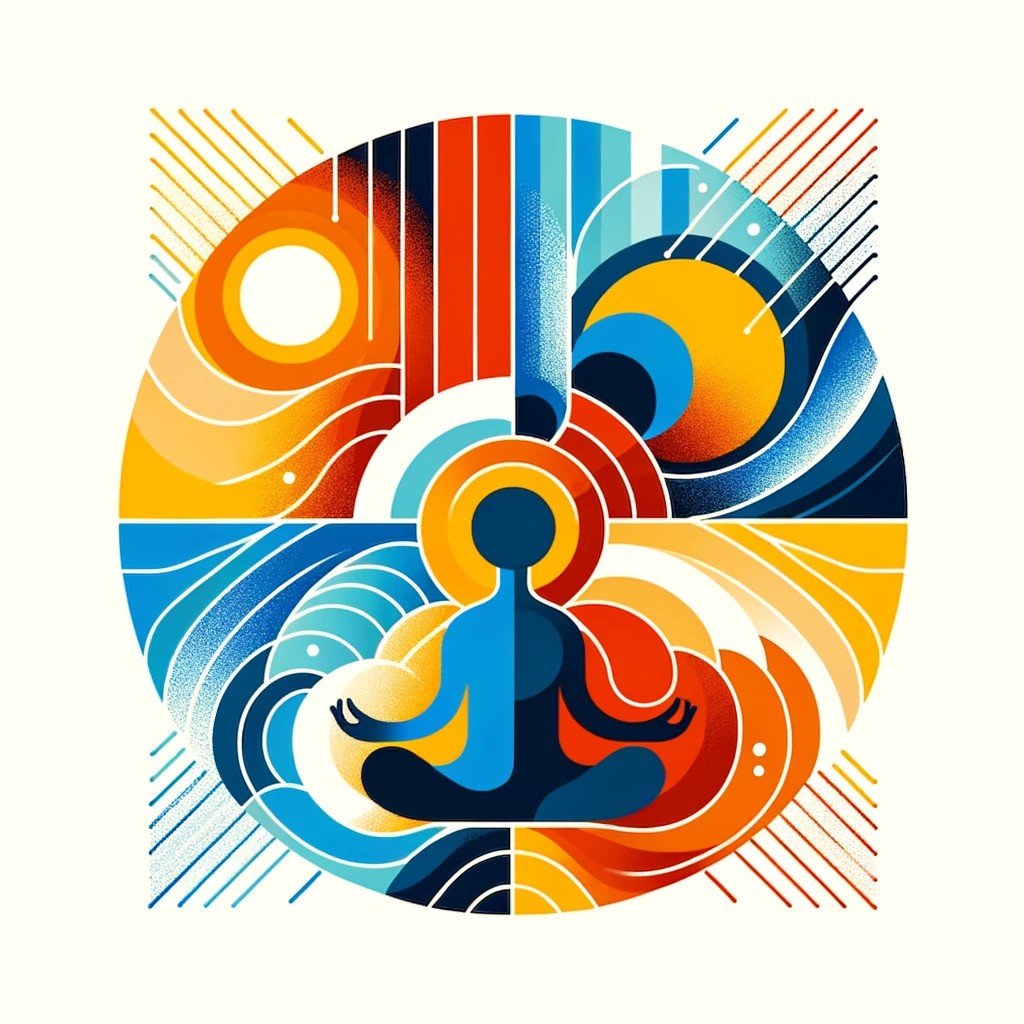
Relationship Yoga
This is your dojo for being human in LA. We train and practice in the art of relatefulness, an ecology of mindful relating practices in honor of building better relationships with more love and truth.
What is Relatefulness?
Relatefulness is a set of practices of discovering and training mindful ways of relating with others. If Mindfulness cultivates awareness, Relatefulness is the cultivation of awareness interpersonally. Practicing Relatefulness is a frontier where any modality that explores the interpersonal space is included. They can be thought of as relational meditations where, instead of bringing our awareness back to a mantra or the breath, we practice bringing our awareness back to “What is it like to be here, now, with this individual human or in this particular constellation of humans?”
While this often looks like a group of people sitting in a circle, movement is welcome. We also practice skill-building exercises in small groups or pairs.
There are two main formats for Relatefulness that have their roots in Circling –– Relateful Focus (or Birthday Circles), where we choose an individual and explore what it’s like to be them and in connection with them in the moment, and Relateful Flow (or Surrendered Leadership Circles), where our individual and collective focus is free to flow wherever it wants to amongst the whole group.

Come to our Weekly Gatherings & Immersions
We hold bi-weekly community relatefulness workshops in Los Angeles. We also regularly hold day-long and weekend-long immersions to deepen our practice
Meet the Team
Values & Orientation
-
In these practices, we are not seeking to change anyone’s experience, but rather to notice what it’s like to be with others in a wide-ranging, human spectrum of emotions and states.
This is a space where we seek to cultivate curiosity, towards ourselves and others, and expand our capacity for presence. We welcome feelings like sadness, shame, and anger as much as feelings like joy, love, and compassion, and we believe that states like disconnection, tension, and boredom are valuable parts of the human relational experience worth exploring.
-
We invite all participants to practice owning their experience. This often includes using more “I” statements and allows us to identify and name projections onto others as well as illuminating our authentic desires, without subconsciously or covertly manipulating anyone else’s experience. Further context and exercises are provided during Fundamentals nights, and our facilitators may prompt checking in whenever they hear an assumption, unchecked stories, or meaning-making enter the flow.
-
While we welcome a wide range of human experiences and expression, our orientation is relational, which means that if someone brings something that has an impact on the group or another individual, the invitation is to stay in connection and be with that impact. “Being with” is not the same as being responsible for regulating anyone else’s nervous system, and does not override our value for staying in connection with oneself. One of the many relational skills this practice can support is staying in connection without self-abandoning. It’s always okay to ask for help, name when you aren’t sure what to do, and prioritize your connection with self.
-
This practice invites every participant to find and cultivate their self-leadership in naming their desires, requests, boundaries, and contexts, while simultaneously exploring what might be in the way of bringing them and the relational impact of naming them.
We do not claim to offer a “safe space” because safety is personal and relative –– what might make one person feel safe can register in another person’s system as unsafe. We also don’t view nervous system activation or being triggered as inherently negative or an indication that anyone’s done anything “wrong,” but rather a natural part of the human experience that can be rich and empowering to explore while in connection.
We see participants as sovereign beings responsible for their own safety and comfort. We invite you to take responsibility for your own experience by naming and maintaining boundaries, and choosing when to participate and when to disengage from the practice, as it feels appropriate to you. That might look like closing your eyes and re-centering, standing up and shaking your body, stepping out of the room, or leaving the session entirely. We invite all participants to exercise Self-Responsibility, and that includes discernment as to whether this practice is appropriate for you at this time.
-
Our facilitators are not psychotherapists and our goal is not healing – although healing is great and it does happen here! We do not follow a therapeutic model of diagnosis and treatment. If you are experiencing acute distress from trauma, mental illness, or need individual counseling, we encourage you to receive support from an appropriate provider.
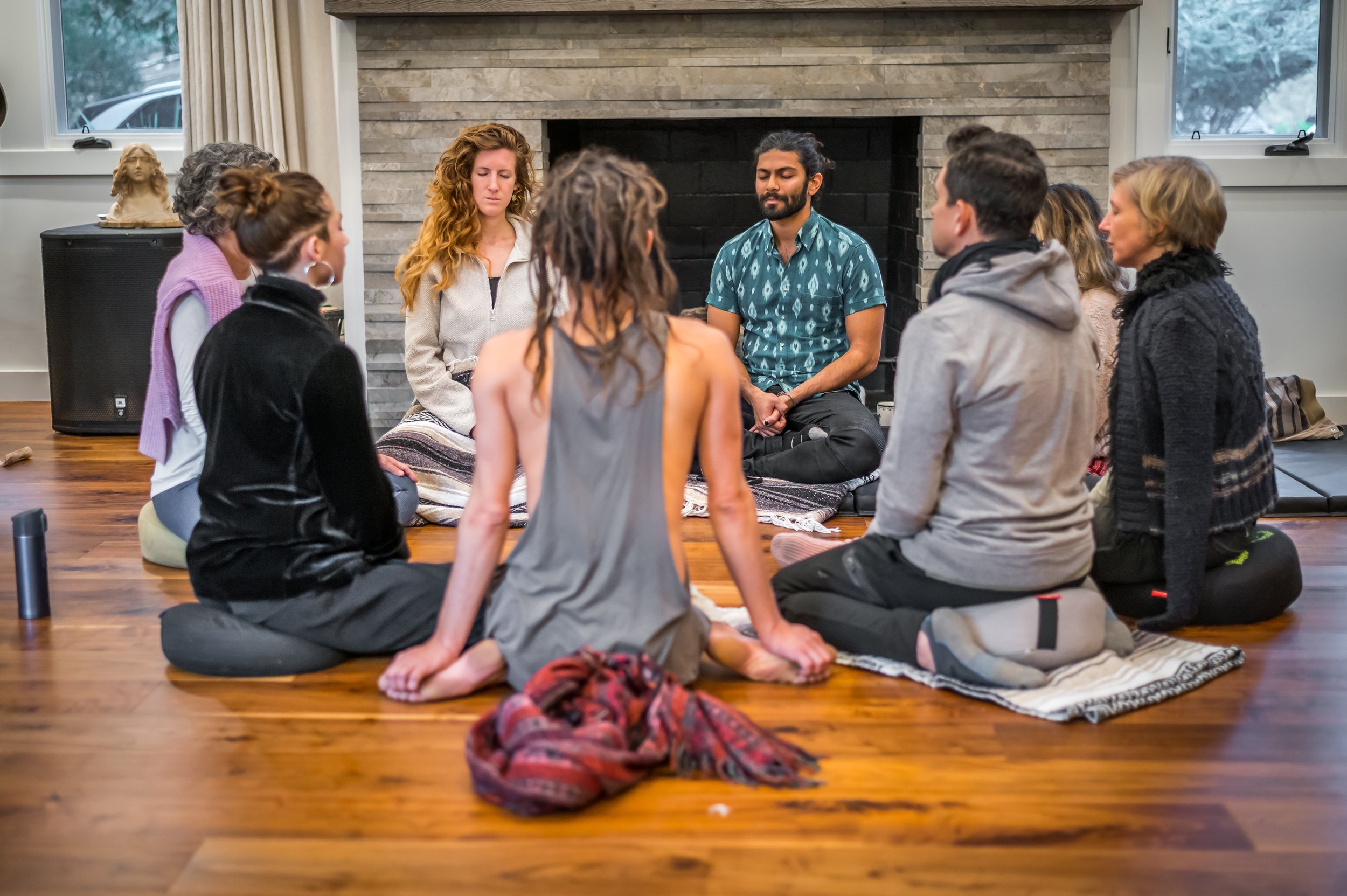
LA Relateful Calendar
